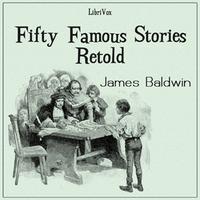21. ARNOLD WINKELRIED
21. ARNOLD WINKELRIED
21. АРНОЛЬД ВИНКЕЛЬРИД
21. ARNOLD WINKELRIED
21.阿诺德·温克里德
A GREAT army was marching into Switzerland.
VELKÁ armáda pochodovala do Švýcarska.
Une GRANDE armée marchait sur la Suisse.
偉大な軍隊がスイスに進軍していました。
If it should go much farther, there would be no driving it out again.
Pokud by to mělo dojít mnohem dále, nebylo by možné ho znovu vyhánět.
S'il devait aller beaucoup plus loin, il ne serait pas possible de le reconduire.
それがもっと遠くに行けば、それを再び追い出すことはないでしょう。
Якщо він зайде набагато далі, його вже не вдасться вигнати.
The soldiers would burn the towns, they would rob the farmers of their grain and sheep, they would make slaves of the people.
Vojáci by vypálili města, obrali by farmáře o obilí a ovce, dělali by z lidí otroky.
兵士たちは町を焼き払い、農民から穀物や羊を奪い、人々を奴隷にしました。
The men of Switzerland knew all this.
Muži ze Švýcarska tohle všechno věděli.
スイスの男性はこのすべてを知っていました。
They knew that they must fight for their homes and their lives.
彼らは自分たちの家と命のために戦わなければならないことを知っていました。
And so they came from the mountains and valleys to try what they could do to save their land.
そして、彼らは自分たちの土地を救うために何ができるかを試みるために、山や谷からやって来ました。
Some came with bows and arrows, some with scythes and pitchforks, and some with only sticks and clubs.
||||||||Sensen||Heugabeln|||||||Keulen
|||луками||стрілами||||||||||||
Někdo přišel s luky a šípy, někdo s kosami a vidlemi a někdo jen s holemi a kyji.
Хтось прийшов з луками та стрілами, хтось з косами та вилами, а хтось лише з палицями та кийками.
But their foes kept in line as they marched along the road.
||||||||йшли|||
Ale jejich nepřátelé se drželi v řadě, když pochodovali po silnici.
しかし、彼らが道を行進するとき、彼らの敵は一列に並んでいました。
Але їхні вороги трималися в строю, коли вони йшли дорогою.
Every soldier was fully armed.
Každý voják byl plně vyzbrojen.
すべての兵士は完全に武装していました。
As they moved and kept close together, nothing could be seen of them but their spears and shields and shin-ing armor.
|||||||||||||||Speere||||||
Jak se pohybovali a drželi se blízko sebe, nebylo z nich vidět nic než jejich kopí, štíty a lesklé brnění.
彼らが移動して接近していると、槍と盾と輝く鎧以外は何も見えませんでした.
Вони рухалися, тримаючись близько один до одного, і нічого не було видно, окрім їхніх списів, щитів і блискучих обладунків на гомілках.
What could the poor country people do against such foes as these?
貧しい国の人々は、このような敵に対して何ができるでしょうか?
"We must break their lines," cried their leader; "for we cannot harm them while they keep together."
"Musíme zlomit jejich linie," zvolal jejich vůdce; "Protože jim nemůžeme ublížit, dokud budou spolu."
「私たちは彼らの境界線を破らなければなりません」と彼らのリーダーは叫びました。 「彼らが一緒にいる間、私たちは彼らを傷つけることはできません.」
"Ми повинні розірвати їхні ряди, - вигукнув їхній ватажок, - бо ми не можемо завдати їм шкоди, поки вони тримаються разом".
The bowmen shot their arrows, but they glanced off from the soldiers' shields.
|||||||злизнули|||||
Lukostřelci vystřelili šípy, ale odvrátili pohled od štítů vojáků.
弓兵は矢を放ったが、兵士の盾をちらりと見た。
Лучники випустили свої стріли, але вони відскочили від щитів воїнів.
Others tried clubs and stones, but with no better luck.
Jiní zkoušeli hole a kameny, ale bez většího štěstí.
他の人は棍棒や石を試しましたが、うまくいきませんでした。
The lines were still unbroken.
Linky byly stále nepřerušené.
The soldiers moved steadily onward; their shields lapped over one another; their thousand spears looked like so many long bristles in the sunlight.
|||||||||||||||||||Borsten|||
||||вперед||||||||||||||||||
Vojáci postupovali plynule kupředu; jejich štíty se překrývaly jeden přes druhého; jejich tisíc kopí vypadalo ve slunečním světle jako tolik dlouhých štětin.
兵士たちは着実に前進した。彼らの盾は互いに重なり合っていました。彼らの何千もの槍は、太陽の光に照らされた非常に多くの長い剛毛のように見えました.
Воїни впевнено рухалися вперед; їхні щити притискалися один до одного; тисячі списів у сонячному світлі виглядали як безліч довгих щетинок.
What cared they for sticks and stones and huntsmen's arrows?
Co se starali o klacky, kameny a myslivecké šípy?
彼らは棒や石や猟師の矢を気にかけたのは何ですか?
Яке їм діло до палиць, каміння та стріл мисливців?
"If we cannot break their ranks," said the Swiss, "we have no chance for fight, and our country will be lost!"
"Pokud nedokážeme zlomit jejich řady," řekl Švýcar, "nemáme šanci bojovat a naše země bude ztracena!"
「彼らの階級を破ることができなければ」とスイス人は言った。
Then a poor man, whose name was Arnold Winkelried, stepped out.
Pak vystoupil chudák, který se jmenoval Arnold Winkelried.
すると、アーノルド・ウィンケルリードという名の貧しい男が出てきました。
Потім вийшов бідний чоловік, якого звали Арнольд Вінкельрід.
"On the side of yonder mountain," said he, "I have a happy home.
||||jener||||||||
"Na úbočí tamní hory," řekl, "mám šťastný domov.
「あそこの山の側に」と彼は言いました、「私には幸せな家があります。
"На схилі тієї гори, - сказав він, - я маю щасливий дім.
There my wife and children wait for my return.
But they will not see me again, for this day I will give my life for my country.
しかし、彼らは二度と私を見ることはありません。この日、私は国のために命を捧げます。
And do you, my friends, do your duty, and Switzerland shall be free."
A vy, přátelé, konejte svou povinnost a Švýcarsko bude svobodné."
友よ、義務を果たせばスイスは自由になる」
With these words he ran forward.
S těmito slovy se rozběhl vpřed.
これらの言葉で彼は前に走った。
"Follow me!"
he cried to his friends.
"I will break the lines, and then let every man fight as bravely as he can."
「私は境界線を破り、すべての人ができる限り勇敢に戦えるようにします。」
He had nothing in his hands, neither club nor stone nor other weapon.
But he ran straight onward to the place where the spears were thickest.
||||вперед||||||||
Ale běžel přímo k místu, kde byly oštěpy nejsilnější.
しかし、槍が一番太いところまで真っ直ぐ走った。
"Make way for liberty!"
"Uvolněte cestu pro svobodu!"
「自由に道を開け!」
"Дорогу свободі!"
he cried, as he dashed right into the lines.
vykřikl, když se vrhl přímo do řady.
彼は列の中に飛び込みながら叫びました。
вигукнув він, вибігаючи прямо на лінію.
A hundred spears were turned to catch him upon their points.
Bylo otočeno sto oštěpů, aby ho zachytily na hrotech.
100本の槍が向けられ、彼をその要点に捕らえました。
Сотня списів була повернута, щоб спіймати його на вістря.
The soldiers forgot to stay in their places.
Vojáci zapomněli zůstat na svých místech.
兵士たちは自分たちの場所にとどまるのを忘れました。
The lines were broken.
Čáry byly přerušené.
Arnold's friends rushed bravely after him.
Arnoldovi přátelé se za ním statečně vrhli.
They fought with what-ever they had in hand.
Bojovali s čímkoli, co měli v ruce.
彼らは手にしたもので戦った。
They snatched spears and shields from their foes.
|rissen sich||||||
Svým nepřátelům vyrvali oštěpy a štíty.
They had no thought of fear.
Na strach neměli ani pomyšlení.
彼らは恐怖について考えていませんでした。
They only thought of their homes and their dear native land.
Mysleli jen na své domovy a svou drahou rodnou zemi.
And they won at last.
A nakonec vyhráli.
Such a battle no one ever knew before.
これまで誰も知らなかったような戦い。
But Switzerland was saved, and Arnold Winkelried did not die in vain.
Ale Švýcarsko bylo zachráněno a Arnold Winkelried nezemřel nadarmo.
しかし、スイスは救われ、アーノルド・ヴィンケルリートは無駄に死んだわけではありませんでした。

